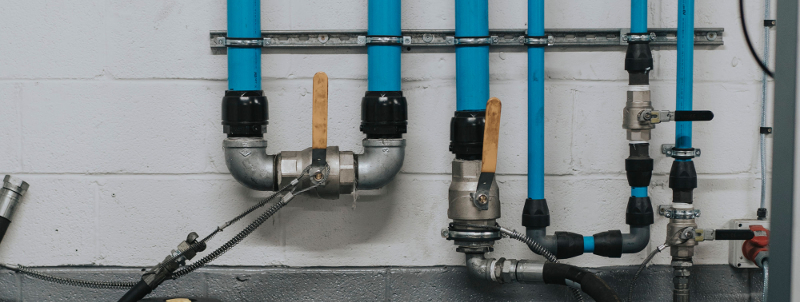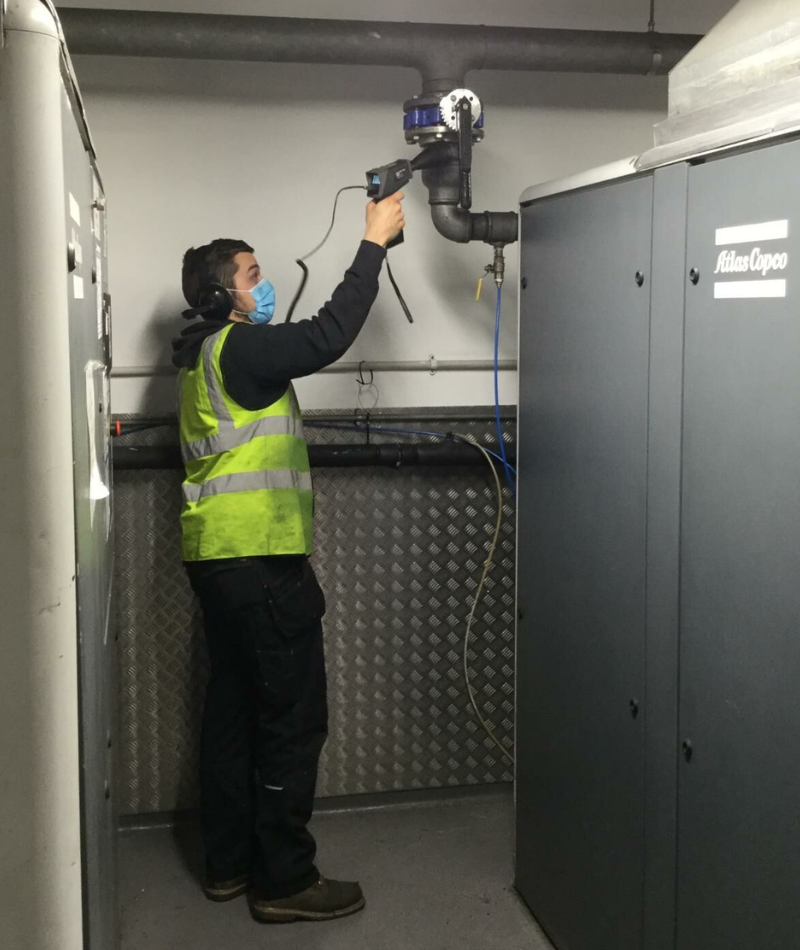

Air leaks are one of the major sources of wasted energy in industry – and one of the easiest problems to identify and fix through our leak detection surveys.
If you haven’t had your system checked over recently, then you are missing out on massive potential savings – so what are you waiting for?
Why do leak surveys?
If you think your compressed air system might have a few leaks but nothing worth bothering to fix, then think again.
Although up to 10% leakage is usually deemed acceptable, in a typical system, engineers will find around 70 – 100 leaks, representing leak rates of anything from 30% to 60%.
In other words, it’s not impossible that more than half of the compressed air generated in your facility is being lost to leakage.
What is the cost of leakage?
When you translate these figures into expenditure, they represent an annual loss of thousands or even tens of thousands of pounds, depending on the size of the factory.
Fixing leaks can also save you money on capital expenditure. Imagine you need to increase your supply of compressed air; your first thought is likely to be: we need a new compressor. Before you sign off on this major investment, it’s always worth getting a leak survey carried out.
If you are losing a large percentage of your compressed air through leakage, you may be able to save yourself the cost of purchasing a new compressor. Even if it turns out that you still need a new machine, we can recommend the most energy efficient variable speed drive models, which will pay for themselves in energy saving over a short period of time.
 What happens during a leak survey?
What happens during a leak survey?
First the engineer will monitor the whole system using a hand-held ultrasonic acoustic detector, to establish flow rates and the location of leaks. The next step is to tag all the leaks that are found.
This can all be carried out in a non-intrusive way, without shutting down any machinery or interrupting your production schedule.
Finally, a report will be written with full details of the leakage and an estimate of how much energy – and money – you could potentially save by fixing the leaks.
Where are leaks found?
While many of the leaks will be in the pipework system, there may also be leaks in the pipes leading into machinery such as pneumatics.
Common areas for leaks are seals, pipe joints, valves, filters, solenoids and flanges, as well as internal leaks in tools.
What other problems does leakage cause?
When a system loses pressure, the response is often to increase the pressure rather than find out the cause. If the pressure loss is due to leakage, then you are asking your system to work harder for the wrong reasons.
Increasing the pressure will increase the likelihood of parts wearing out, which will lead to costly repairs, potential downtime if machinery fails and a reduction in the lifetime of the machinery. All this is avoidable.
What happens next?
We will arrange for an engineer to come in and fix the leaks. In some instances it may be a simple case of tightening a loose joint, in others we may need to replace part of the compressed air system.
At this stage, the pressure of the system can be lowered to take into account the added efficiency and you will start to see the benefits in your energy bills moving forward.
Dealing with leakage will usually require more than one visit as the system should be checked and monitored on a regular basis following the first set of repairs, to keep on top of future issues.
Companies that find out they have serious air leakage but don’t follow up on getting the leaks fixed are making a false economy. Yes, there will be initial outlay to sort out the problem, but the payback time is relatively short and you are sure to save money in the long run.
Lean, mean and green!
Cutting down on leaks will make your whole system more energy efficient, which is not only better for your bottom line but will also reduce your carbon footprint.
Conclusion
Leak surveys are arguably the most cost effective and energy-saving activity on offer.
Contact our sales team to find out more: sales@pps.co.com; 01422 321 772.
Click here to contact us today »
